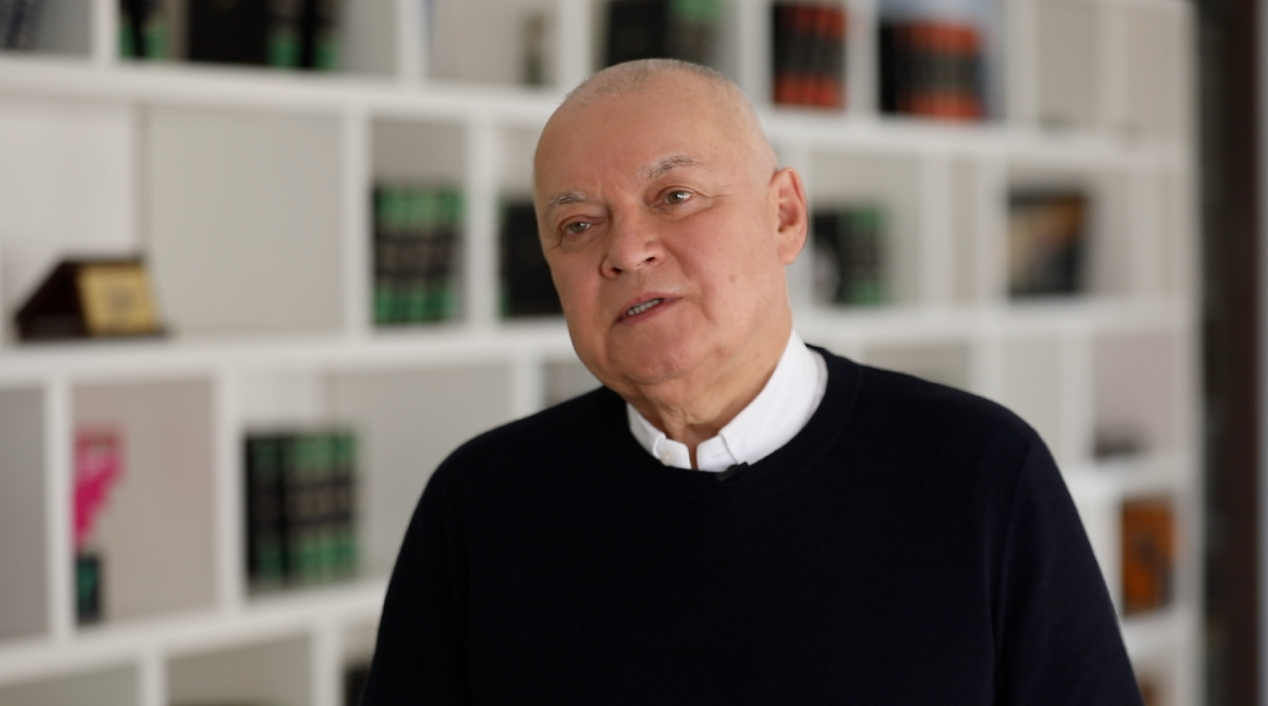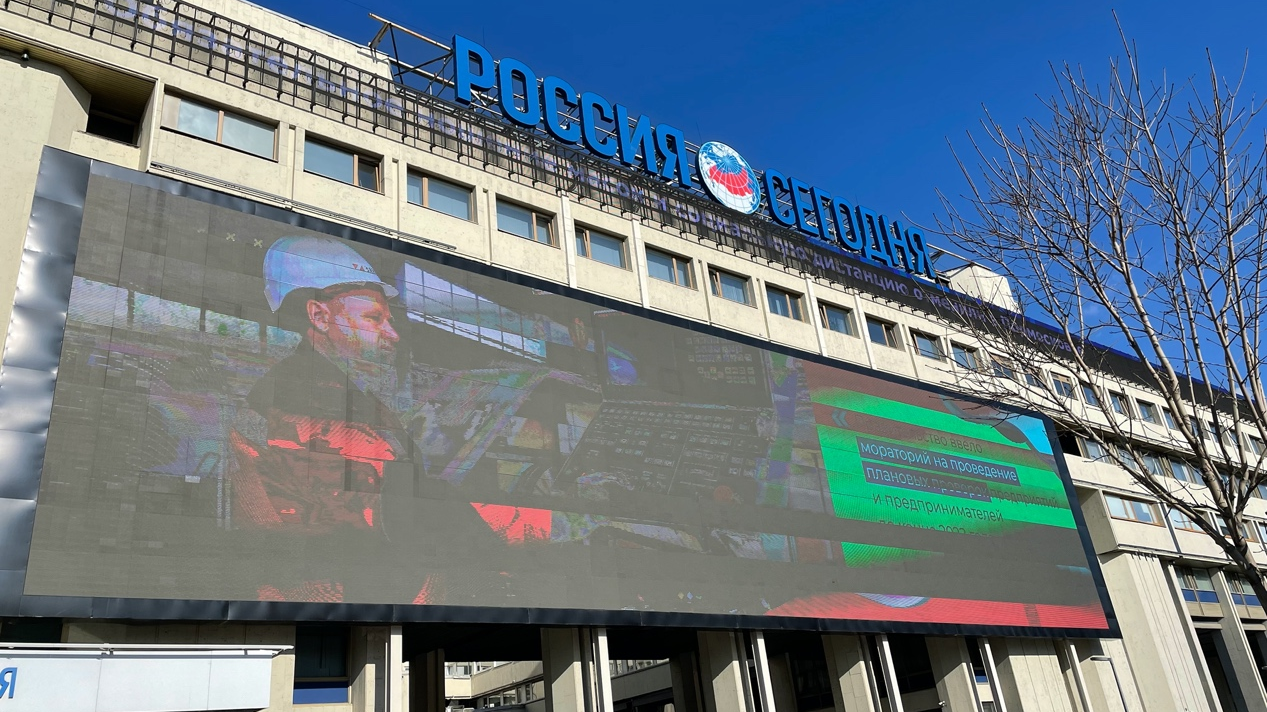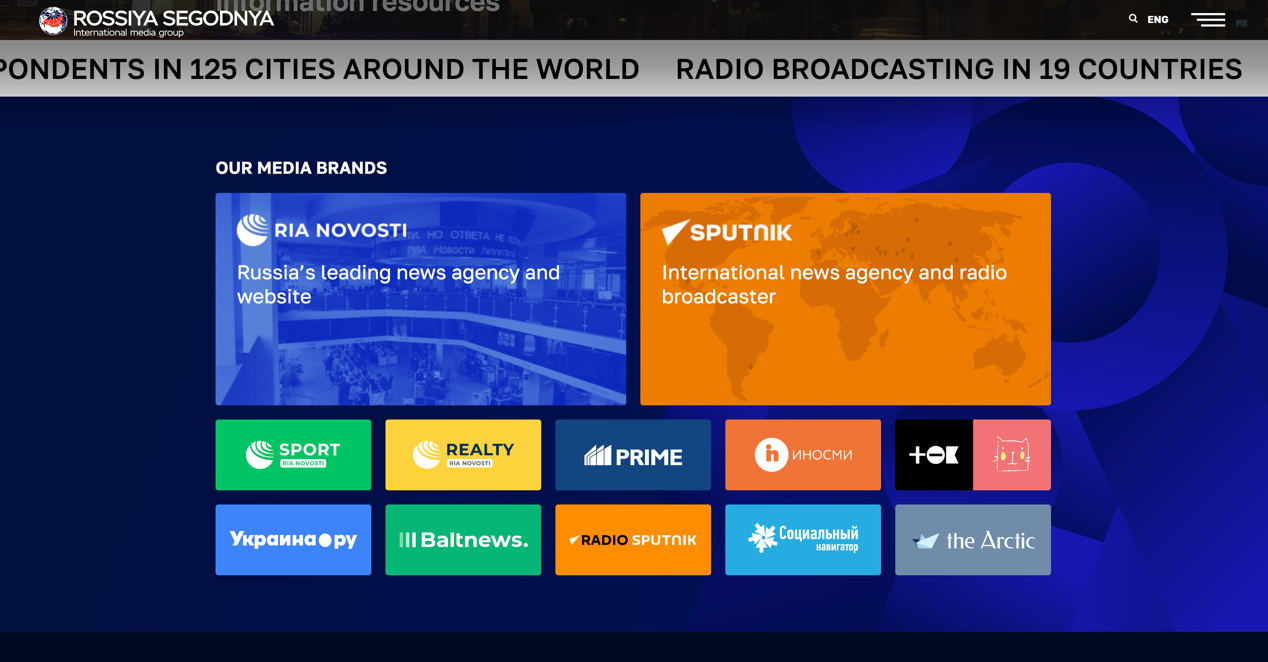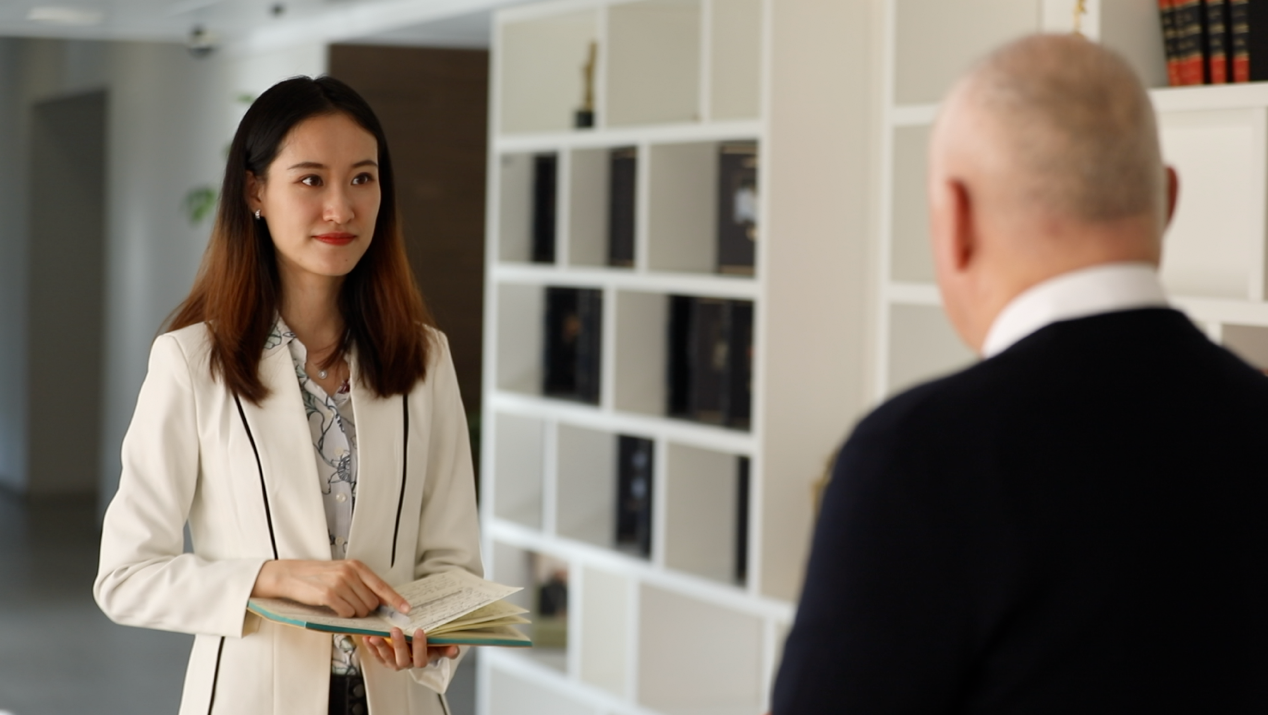02:59

In response to Russia's "military operation" in Ukraine on February 24, YouTube and Facebook have blocked two of Russia's biggest news outlets, Russia Today and Sputnik News, across Europe. Apple, Google and Microsoft have pulled their apps out.
Some Western countries accused the outlets of being Kremlin's mouthpiece and tools for disinformation and banned the broadcasting of these agencies.
In an exclusive interview with CGTN, Dmitry Kiselev, director general of the Rossiya Segodnya International Media Group, said the ban of Russian news media contradicts the West's claim that it values freedom of speech.
Despite a 10 percent loss of their viewers, Russian journalists are working as usual, Kiselev said.

The Rossiya Segodnya International Media Group's headquarters in Moscow, Russia. /CGTN
The Rossiya Segodnya International Media Group's headquarters in Moscow, Russia. /CGTN
Established on December 9, 2013, the Rossiya Segodnya International Media Group is Russia's largest provider of information products geared toward an international audience, the business community, government agencies and the general public.
The group owns Sputnik and the well-known Russian media outlet RIA Novosti.

A screenshot of Rossiya Segodnya's webpage showing its media brands, including Sputnik News and RIA Novosti News. /Rossiya Segodnya
A screenshot of Rossiya Segodnya's webpage showing its media brands, including Sputnik News and RIA Novosti News. /Rossiya Segodnya
The following excerpts from the interview were edited for clarity and brevity.
CGTN: How many users will be affected by the sanctions? What is the current status of your agency?
Kiselev: We have lost about 10 percent of our audience. In total, we have 28 million people on social networks around the world.
The agency keeps working in full format. We have a large audience in post-Soviet countries. For example, we are leaders in Armenia, Tajikistan, Abkhazia, South Ossetia and Kyrgyzstan throughout this space. Our audience in Ukraine has significantly increased, so we are working, in fact, in full format. We don't work on Facebook and YouTube because we consider it immoral for us to work on resources that engage in outright censorship.
CGTN: What's your view on Western media's coverage of the Russia-Ukraine conflict?
Kiselev: The very fact that all information channels have been blocked to us, our agency and the RT TV company suggests that the West is not coping with freedom of speech and its values.
In general, everything that was like the "cornerstones" of Western ideology, whether it was the inviolability of private property, the presumption of innocence, freedom of speech – all this collapsed at one point. But as for private property, they are already seizing Russian homes in Europe, ignoring the presumption of innocence. Freedom of speech does not work; there is no other point of view; no one is interested in alternative information. Everything is focused on Russophobia.

CGTN's reporter Liu Jiaxin (L) interviews Dmitry Kiselev in Moscow, Russia, March 15, 2022. /CGTN
CGTN's reporter Liu Jiaxin (L) interviews Dmitry Kiselev in Moscow, Russia, March 15, 2022. /CGTN
CGTN: What do you think of the latest media-related laws signed by Russian President Vladimir Putin criminalizing the deliberate public dissemination of "false information about the Russian armed forces"?
Kiselev: Probably, it was such a forced measure. Although this law does not work in the sense that I have not heard there is any law enforcement practice; it has been announced as it were. There is not a single court case yet. It is necessary in the conditions of military time. In fact, because you cannot spread fake news against the belligerent army, against the armed forces.
And there are people there because we are suffering losses. People perform feats. They are very motivated; they know what they are fighting for. They are fighting for freedom and against the threat to Russia because Ukraine was made Anti-Russia.
CGTN: What impact do the Western sanctions have on your agency and information publishing related to Russia in the future? What would Sputnik do facing this situation?
Kiselev: What can we do? We cannot respond to sanctions in any way. We can just continue working under sanctions. In fact, we will be engaged in professional activities. Our journalists will work and provide an alternative point of view, an alternative to the psychosis that now reigns in the West. So, I think that Russia will survive – it is a millennial power. Our ancestors faced much more serious challenges.

